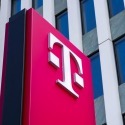Eurobites: Deutsche Telekom, EWE Form FTTH Joint Venture
Also in today's EMEA regional roundup: Orange Digital Ventures invests in mobile marketing automation startup; Bharti Airtel staying put in Africa; Dixons Carphone profits down.

In today's EMEA regional roundup: FTTH boost for north-west Germany; Orange Digital Ventures invests in mobile marketing automation startup; Bharti Airtel staying put in Africa; Carphone Warehouse profits down.
Deutsche Telekom AG (NYSE: DT) is forming a joint venture with German utility firm EWE to expand the fiber access network in the north-west of Germany. The pair say they will together invest €2 billion (US$2.3 billion) over ten years in the rollout, which will see more than a million households in the states of Lower Saxony, North Rhine-Westphalia and Bremen connected to an expanded FTTH network. The project is scheduled to start in mid-2018, though the joint venture still has to be approved by the German Federal Cartel Office. The new network will owned by the joint venture, though it will be offered for use to other service providers.
Orange Digital Ventures, the startup investment arm of the French giant, is among a group of investors stumping up $11 million for the Series B funding round of FollowAnalytics, which specializes in software that automates mobile marketing. The latest batch of finance, which takes the startup's pot since formation to $27 million, is intended to enable FollowAnalytics to launch a new product by the end of this year. (You'd better get a move on, fellers.) The company, currently based in San Francisco (though conceived in France), also plans to expand geographically to the east coast of the US and to western Europe.
Bharti Airtel Ltd. (Mumbai: BHARTIARTL) has dismissed reports that it is planning to quit the African markets of Kenya, Rwanda and Tanzania, though it does acknowledge that it is open to "consolidation opportunities" in these countries. India's Economic Times seemed to have triggered the rumors, writing that the operator needed to exit African markets where it was falling short of expectations. For more details, see this story on our sister site, Connecting Africa.
Pre-tax profits at Dixons Carphone , one of the UK's leading mobile phone retailers, fell by 60% year-on-year to £61 million ($81.4 million) in the first half of its financial year, the BBC reports. Like-for-like sales, however, rose by 4%, and shares in the company rose by 7.9% in the wake of the announcement. The later launch of the iPhone X was blamed for shunting some sales into the second half of the retailer's financial year.
Nuage Networks , Nokia Corp. (NYSE: NOK)'s SD-WAN arm, has been given the task of connecting up the offices of Crèdit Andorrà, a banking group based in the Pyrenean principality. The deployment of Nuage's Virtualized Network Services (VNS ) offering will, boasts the vendor, "accelerate service delivery while reducing operating overhead and costs." (See Nuage's Khandekar on the Future State of SD-WAN.)
Flexenclosure , the Swedish designer and manufacturer of data centers and telecom site power systems, has secured a €10 million ($11.7 million) loan from the European Investment to support its R&D activities and growth strategy.
Private equity firm Warburg Pincus has sold Inea, the Polish cable operator, to the Macquarie Group. Founded in 1992, Inea offers triple- and quad-play services to residential and business customers. Financial details of the sale were not disclosed.
Yesterday we had Ericsson AB (Nasdaq: ERIC) offering some wacky predictions for telecom in 2018; today it's the turn of the seers at Norway's Telenor Group (Nasdaq: TELN), who have come up with perhaps more grounded best-guesses. Among Telenor's seven-strong list are: AI and deep learning will hit the mass market; we will all start wearing our wallets; and (this could be stretching things) people will actually start reading online Terms & Conditions.
This technology is obsolete. Stop. Please send emails. Stop. What's an email? Stop. Yes, it's the end of the telegram, in Belgium at least, where Proximus has called time on this communication stalwart after 150 years of pre-Twitter brevity. According to the operator, slightly over 8,000 telegrams were sent and received during the first 11 months of 2017. Is it just me or does that sound like quite a lot?
— Paul Rainford, Assistant Editor, Europe, Light Reading
Read more about:
EuropeAbout the Author(s)
You May Also Like




_International_Software_Products.jpeg?width=300&auto=webp&quality=80&disable=upscale)







